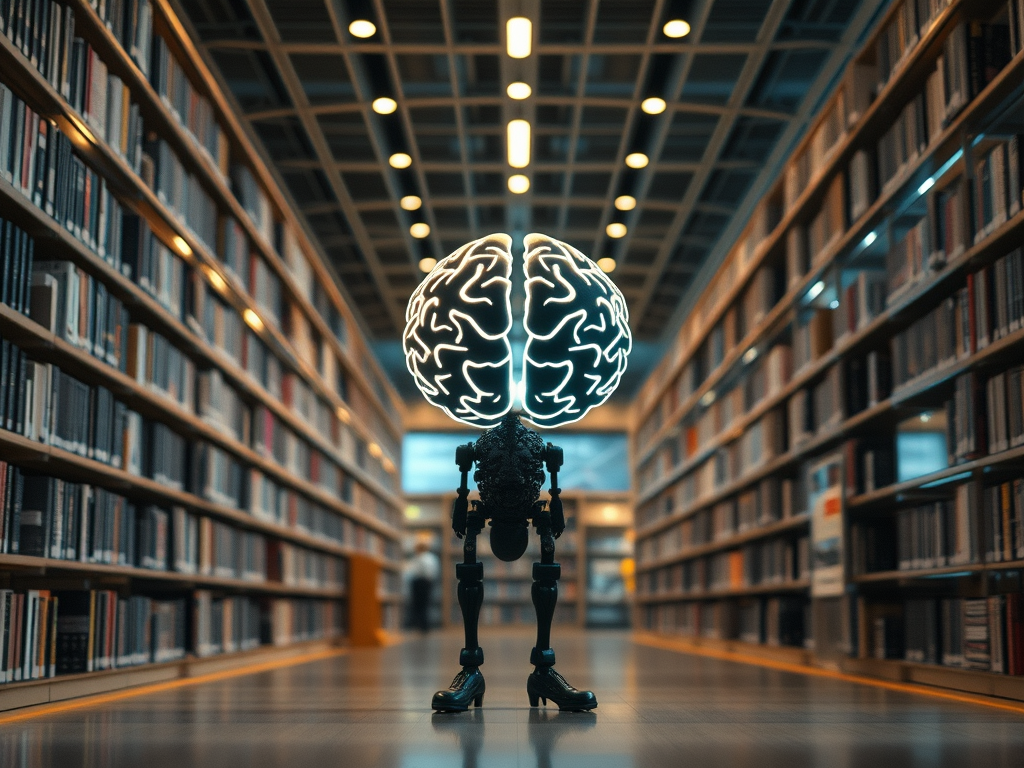Search engines have been at the heart of the digital experience for decades, helping users find relevant content, products, and services. Google, Bing, and other search engines have long been the primary tools for people looking to navigate the internet. Besides their dominance, search engine optimization (SEO) has become a crucial digital marketing strategy. SEO allows businesses and content creators to compete for visibility on search engine results pages (SERPs), leading to traffic, conversions, and revenue.
But what happens if ChatGPT or similar AI-powered assistants replace search engines? ChatGPT challenges the traditional search engine model with its ability to generate immediate, conversational responses to queries. The rise of AI-powered assistants might redefine how people access information, shifting away from keyword-driven searches and toward a more conversational, intuitive user experience.
This article will explore the future of SEO in a world where AI tools like ChatGPT replace traditional search engines. We will explore how the SEO landscape may change, what strategies businesses and marketers should adopt, and how AI technology will influence content creation, user behaviour, and the digital marketing ecosystem.
1. The Current State of SEO
Before exploring a future dominated by AI, it’s essential to understand the current landscape of SEO. SEO as we know it today is driven by search engines like Google, which use complex algorithms to rank web pages based on hundreds of factors. Some key components of SEO include:
- On-page SEO: Optimizing individual pages to rank higher on SERPs, which involves keyword research, meta tags, headers, and content optimization.
- Off-page SEO: Building authority and trustworthiness through external factors like backlinks from reputable websites.
- Technical SEO: Ensuring that websites are structured in ways that allow search engine crawlers to easily access and index content.
- Content SEO: Crafting high-quality, valuable content that answers user queries and satisfies search intent.
The SEO industry has evolved in tandem with Google’s algorithm updates, such as Panda, Penguin, and RankBrain, which have shaped how marketers approach optimization. Keywords, user intent, mobile optimization, and voice search have become focal points for successful SEO strategies.
However, with the rise of AI technologies like ChatGPT, the paradigm of SEO could shift significantly, requiring a new approach to how businesses optimize for visibility and reach.
2. How ChatGPT Could Replace Traditional Search Engines

ChatGPT and similar AI-powered models represent a new way of interacting with the internet. Instead of inputting keywords into a search engine and sifting through links, users can ask ChatGPT-specific questions and receive direct, conversational responses. This type of interaction is often faster, more efficient, and potentially more personalized than traditional search engine results.
Some of the ways AI tools like ChatGPT could replace search engines include:
- Conversational Search: Users may prefer interacting with a chatbot over typing search queries into a search engine. ChatGPT can provide more contextually relevant answers without requiring users to wade through a long list of results.
- Immediate Answers: Instead of relying on search engines to provide links to websites that may or may not have the answer, AI can generate a response immediately based on a vast database of information.
- Personalization: AI models like ChatGPT can be tailored to individual users, remembering preferences, learning from past interactions, and offering increasingly relevant results over time.
- Multimodal Capabilities: AI-powered systems can integrate text, voice, and visual inputs seamlessly, offering a more dynamic search experience compared to the traditional SERP format.
With these features, ChatGPT threatens to disrupt the traditional search engine ecosystem. If the majority of users turn to AI chatbots for information, SEO as we know it today would require significant rethinking.
3. The Shift in SEO Priorities: From Keywords to Conversations
If AI models like ChatGPT become the new go-to source for information retrieval, the first major shift for SEO would be the de-emphasis on traditional keyword strategies. ChatGPT doesn’t rely on keyword-based algorithms like Google’s. Instead, it generates answers based on the semantic understanding of user queries.
Some key changes that could redefine SEO in this new AI-driven future include:
a. Natural Language Processing (NLP) as the Core of SEO
As AI models become more adept at understanding and generating human language, natural language processing (NLP) will take centre stage. Businesses and content creators will need to focus less on optimizing for specific keywords and more on creating content that mimics natural, human-like conversation. SEO strategies may involve training AI models with relevant content to ensure that the AI is pulling from the right sources to answer queries effectively.
b. Content Context Over Keywords
ChatGPT understands user intent on a deeper level, meaning it can respond to questions even when they’re not phrased in traditional search-friendly language. This change will shift the emphasis from specific keywords to content context. Content will need to be broader in scope but highly relevant and authoritative to appear in AI-generated responses. Businesses will need to create informative, well-structured content that addresses a wide range of related topics rather than hyper-focused keyword optimization.
c. The Rise of Conversational Content
AI models respond well to content that aligns with conversational language. This will likely prompt a rise in content formats that resemble dialogue or Q&A structures. Marketers may need to develop content that anticipates the kinds of questions users might ask in natural language and provide direct, clear answers.
4. Content Strategy in a ChatGPT-Dominated World

SEO will always be connected to content, but the type of content required will change dramatically in a world dominated by AI models like ChatGPT. The future of content strategy may include the following key elements:
a. Focus on Topic Authority
In a world where AI models dominate search, the ability to be recognized as an authority on a particular topic will become more important than ever. AI tools like ChatGPT rely on a mixture of curated knowledge, authoritative sources, and general language models to answer questions. Businesses that want to stay competitive in this space will need to invest heavily in becoming topic authorities within their respective fields.
Building topic authority can involve creating comprehensive content that covers a topic from all angles, producing original research, and consistently updating content to reflect the latest developments in the industry.
b. Content That AI Can “Read”
AI models need to understand and digest content effectively. This means that content must be structured in a way that AI can easily process. Structured data, well-organized information, and adherence to content clarity will be essential for ranking in AI-driven search results. Technical SEO might evolve to ensure that content is presented in a way that is easily accessible to AI crawlers and not just human users.
c. Long-Form, In-Depth Content
AI thrives on a rich dataset to draw from when generating responses. While short, keyword-optimized articles may have once been a staple of SEO, the shift toward AI-based search will likely emphasize the importance of long-form, comprehensive content. More detailed content will give AI models the breadth of information needed to provide useful answers, encouraging marketers to focus on depth over brevity.
5. The Role of Backlinks in the Age of AI Search

Backlinks have traditionally been a cornerstone of off-page SEO. Search engines like Google use backlinks as a way to measure a website’s authority and trustworthiness. But if AI tools like ChatGPT take over, what will happen to the role of backlinks?
a. Diminished Importance of Traditional Backlinks
With AI models serving as intermediaries between users and information, traditional backlinks may lose some of their significance. AI doesn’t rely on external links in the same way that Google’s algorithm does, focusing instead on the content it has been trained on. However, backlinks could still play a role in determining the credibility and authority of the content that AI tools use as sources. Websites with strong backlink profiles may still be favoured by AI when compiling information for responses.
b. A New Type of Backlink
In the AI era, backlinks might evolve into a more complex system of digital credibility. Instead of simply linking one webpage to another, new types of “citations” may emerge, which help AI models identify authoritative sources for specific queries. This could result in a new form of SEO that’s focused on getting content referenced by AI models rather than merely achieving backlinks from high-domain-authority websites.
6. The Future of Technical SEO
Technical SEO will remain a critical aspect of any strategy in the AI-dominated future. However, the focus will shift from optimizing for search engines like Google to ensuring content is accessible and understandable by AI tools.
a. Structured Data and Semantic Markup
In the age of AI, structured data and semantic markup will likely play an even bigger role. AI tools depend on structured data to extract and interpret information efficiently. Schema markup will help AI understand the relationships between different types of content and provide better answers to user queries.
b. Website Performance and AI Readability
Websites will need to be optimized not just for human visitors but also for AI systems that crawl and process their content. This might involve ensuring that sites load quickly, are mobile-friendly, and have a clean and easy-to-navigate structure. AI will prioritize content that can be parsed efficiently, which means eliminating technical barriers that may inhibit AI models from accessing and processing content effectively.
7. User Experience (UX) and Its Role in SEO’s Future
In a future where AI assistants dominate search, user experience (UX) will play a pivotal role in ensuring content reaches users effectively. Traditional SEO practices like optimizing for mobile or reducing page load times will still matter, but the focus will shift toward creating a seamless experience for AI-driven interactions.
a. Optimizing for AI-Driven Interactions
As more users turn to AI-driven assistants for information, UX design will need to accommodate interactions with these tools. For instance, if users engage with your website via a voice assistant or chat-based AI, the website’s structure and content must be designed to facilitate these interactions. Creating chatbot-friendly interfaces or conversational landing pages might become an essential part of future UX optimization.
b. Enhanced Accessibility
AI-based systems can only deliver accurate results when the information is accessible. Businesses that prioritize accessibility, such as providing alt text for images, implementing clear navigational structures, and ensuring content is available in multiple formats, will have an advantage in the AI-driven landscape.
8. The Impact on Paid Search and Advertising
As ChatGPT and similar AI tools take over more of the search landscape, the impact on paid search strategies could be significant. Today, platforms like Google Ads allow businesses to buy visibility in search engine results. But in a world dominated by AI responses, how will businesses continue to advertise?
a. AI-Optimized Advertising
AI models will need to incorporate some form of advertising to monetize their services. Businesses may need to shift their paid search strategies to align with AI-powered platforms. This could involve sponsoring answers, similar to the way paid search results work today. Alternatively, businesses could pay for placement within AI-generated responses, ensuring their content is presented as part of the answer.
b. Targeted AI-Driven Ads
AI tools could revolutionize the way ads are targeted. With AI capable of understanding user preferences, past interactions, and intent more deeply than traditional algorithms, businesses may be able to create highly personalized ad experiences. AI could curate ads that feel less like interruptions and more like valuable recommendations.
9. Ethical Considerations and the Role of AI in Information Gatekeeping

As AI assistants become more prominent in content delivery, ethical questions will arise. AI-driven search could centralize control over information, making it essential to ensure transparency and fairness in how content is selected and displayed.
a. Algorithmic Transparency
Businesses and users alike will demand more transparency in how AI models select and present information. Without clear insights into how AI algorithms prioritize certain content over others, there’s a risk that AI-driven search could become biased or unfairly influenced by certain players.
b. Content Moderation and Bias
AI systems are only as good as the data they’re trained on. If not properly moderated, AI assistants could inadvertently spread misinformation, bias, or harmful content. Businesses will need to be vigilant about ensuring their content is factually accurate, unbiased, and complies with ethical standards. Likewise, AI developers will face increasing pressure to ensure their models are transparent, neutral, and trustworthy.
10. Preparing for the AI-Driven SEO Future
As the rise of AI tools like ChatGPT reshapes the digital landscape, businesses, content creators, and marketers will need to adapt their SEO strategies. This shift will require a focus on creating high-quality, authoritative content that aligns with AI models, optimizing technical aspects for AI comprehension, and prioritizing user experience for AI-driven interactions.
a. Staying Ahead of the Curve
Businesses that invest early in understanding how AI assistants work and how to optimize content for these platforms will have a significant advantage. Experimenting with conversational content, building topic authority, and ensuring technical SEO is in line with AI requirements will be key strategies moving forward.
b. Continuous Learning and Adaptation
The world of SEO is always evolving, and the rise of AI-powered assistants is just the latest in a series of disruptions. Continuous learning, experimentation, and adaptation will be necessary to stay competitive in the AI-dominated future of search.
Conclusion
The future of SEO in a world where ChatGPT and other AI assistants replace traditional search engines is both exciting and uncertain. While traditional SEO tactics like keyword optimization and backlinks may lose some of their importance, new opportunities will emerge in creating conversational, authoritative, and accessible content that AI can easily interpret. Businesses that embrace these changes and adapt to the new AI-driven search landscape will be well-positioned to thrive in the future of digital marketing.